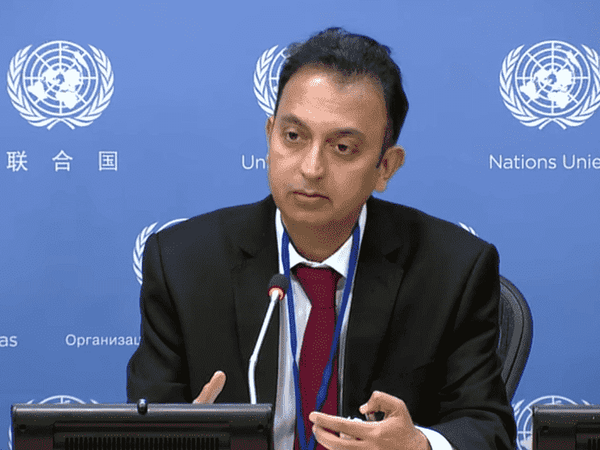Iranian rights activists see Javaid Rehman's 2024 report on the human rights situation in Iran as a monumental victory for justice and a beacon of hope for the Iranian people and advocates worldwide.
This report meticulously documents atrocities committed by the Iran’s Islamic government over the past four decades, underscoring that these heinous acts are not forgotten and that there remains a persistent and determined pursuit of justice and accountability for the victims and their families.
Rehman's report serves as a historical record and a critical call to action for the international community. It urges global actors to support mechanisms that ensure accountability and prevent further human rights violations.
By highlighting the systematic nature of these abuses and the enduring struggle for justice, the report emphasizes the need for sustained international pressure and support for Iranian human rights defenders. Importantly, the report underscores the necessity of involving survivors and witnesses in justice. Rehman points out the Iranian government's concerted efforts to destroy evidence, such as mass graves, and suppress the truth. Despite these challenges, the resilience of victims' families and human rights activists has ensured that these atrocities remain in the public consciousness.
The report highlights the systematic human rights violations and atrocities committed by the Islamic Republic of Iran (IRI) since the 1980s, including the infamous 1988 massacre of political prisoners. Rehman's detailed analysis points out that thousands of political prisoners were executed without fair trials, a dark chapter in Iran's history that has yet to see justice. The enduring suffering of the victims' families, who have been denied the truth about their loved ones' fates, is a stark reminder of Tehran’s ongoing repression.
Had the international community addressed these atrocities when they occurred, subsequent human rights violations by the IRI might have been mitigated, the report emphasizes. The regime's impunity has only emboldened it to continue its repressive tactics. By documenting these historical abuses and connecting them to contemporary issues, Rehman provides a comprehensive overview of the IRI's long-standing patterns of human rights violations.
The success of Rehman's report results from years of dedicated activism and meticulous fact-gathering by human rights organizations and activists. These organizations have played crucial roles in documenting abuses, collecting testimonies, and advocating for justice. Their relentless efforts have laid the groundwork for Rehman to present a compelling case for crimes against humanity and genocide committed by the IRI.
Among these pivotal organizations, the Rastyad Collective stands out for its groundbreaking research and meticulous documentation of human rights abuses in Iran. Their comprehensive study on the 1981 massacre in post-revolutionary Iran has unveiled the systematic nature of state violence and its enduring impact on the nation's legal foundations. The Rastyad Collective's anonymous researchers have bravely gathered evidence on the ground, often at great personal risk, documenting over 3,500 executions across 85 cities. Their work sheds light on the tragic fate of many, including the execution of 103 children. It confirms that the 1981 massacre occurred within a legal vacuum, with the state resorting to extra-legal means of violence to assert control.
By meticulously examining the events surrounding the massacre, the Rastyad Collective has highlighted how these egregious acts of state violence were used to instill fear and consolidate power. Their research has been crucial in understanding the development of Iran's theocratic regime and its legal framework, revealing how the 1981 atrocities have shaped the ongoing human rights landscape in Iran.
Javaid Rehman's July 2024 report is a testament to the power of persistent activism and the critical role of comprehensive, evidence-based reporting in the fight for human rights. It represents a significant victory for those who have long sought justice for the victims of the IRI's atrocities. The report not only brings to light the historical abuses but also highlights the ongoing struggle for accountability in Iran.
The international community must heed Rehman's call to action. By supporting efforts to hold the Iran’s Islamic government accountable, the global community can help ensure that the victims and their families receive the justice they deserve. The report serves as a powerful reminder that the fight for human rights is ongoing, and that the pursuit of justice must continue unabated. Activists from other countries should emulate the Iranian model, continuing to document the crimes of their brutal regimes and never losing sight of hope.
